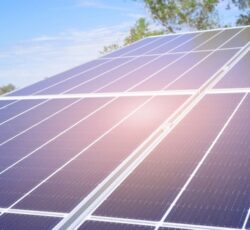 Solar energy is becoming an increasingly popular and sustainable alternative to traditional sources of power. As more homeowners and businesses invest in solar panels, the need for efficient energy storage solutions has also grown. Solar batteries play a vital role in storing excess energy generated by solar panels for use during periods of low sunlight or at night. In this article, we will explore the main types of solar batteries available on the market today and discuss their features and advantages.
Solar energy is becoming an increasingly popular and sustainable alternative to traditional sources of power. As more homeowners and businesses invest in solar panels, the need for efficient energy storage solutions has also grown. Solar batteries play a vital role in storing excess energy generated by solar panels for use during periods of low sunlight or at night. In this article, we will explore the main types of solar batteries available on the market today and discuss their features and advantages.
Lead-Acid Batteries
Lead-acid batteries have been used for many years in various applications, including solar power systems. They consist of lead plates submerged in an electrolyte solution comprising sulfuric acid and water. These batteries are typically installed in banks of multiple cells to achieve the desired voltage and capacity.
One of the main advantages of lead-acid batteries is their long-standing presence in the market, making them easily accessible and affordable. They are also known for their high surge power capability, which is essential for systems that need to handle intermittent high-power demands.
However, lead-acid batteries have some limitations. They require regular maintenance, including topping up the electrolyte solution and monitoring the battery temperature. Additionally, they have a limited lifespan and relatively low energy density, meaning they can store less energy compared to other battery types.
Lithium-Ion Batteries
Lithium-ion (Li-ion) batteries have gained significant popularity in recent years due to their high energy density, longer lifespan, and maintenance-free operation. Li-ion batteries use lithium cobalt oxide or lithium iron phosphate as the cathode material and a carbon-based anode.
One of the primary advantages of Li-ion batteries is their superior energy storage capacity. They can store more energy in a smaller physical footprint, making them ideal for residential installations with limited space. Li-ion batteries also have a higher round-trip efficiency, meaning they can store and release energy more efficiently compared to lead-acid batteries.
Furthermore, Li-ion batteries provide better charging and discharging capabilities, allowing for a greater depth of discharge without significantly affecting their lifespan. The ability to discharge at a greater depth increases the usable capacity of the battery, resulting in increased energy availability during peak demand or in times of low solar energy production.
Flow Batteries
Flow batteries, also known as redox flow batteries, are a promising energy storage technology for solar power systems. Unlike other battery types, they don’t store energy in solid materials but rather in liquid electrolytes stored in separate tanks. The energy is stored by flowing the electrolytes through a cell stack, generating an electric charge.
One of the main advantages of flow batteries is their scalability. They can be easily expanded by increasing the size of the electrolyte tanks, allowing for greater energy storage capacity as needed. Flow batteries also have a longer lifespan compared to traditional batteries, as they can withstand a greater number of charge and discharge cycles without significant degradation.
However, flow batteries have some drawbacks. They require more space due to the larger size of the electrolyte tanks and the need for additional plumbing and pumps. They also have lower energy density compared to lithium-ion batteries, which means they require more physical space to store the same amount of energy.
Conclusion
Choosing the right solar battery for your energy storage needs is crucial to maximizing the efficiency and reliability of your solar power system. Lead-acid batteries, although affordable, require regular maintenance and have limited energy storage capacity. Lithium-ion batteries offer higher energy density and longer lifespan, making them an excellent option for residential installations. Flow batteries, on the other hand, provide scalability and long-lasting performance, but require more physical space. It is essential to consider your specific requirements and consult with a professional solar company to determine the most suitable type of solar battery for your solar power system. With the right battery, you can maximize the benefits of your solar panels and ensure uninterrupted power supply day and night.
